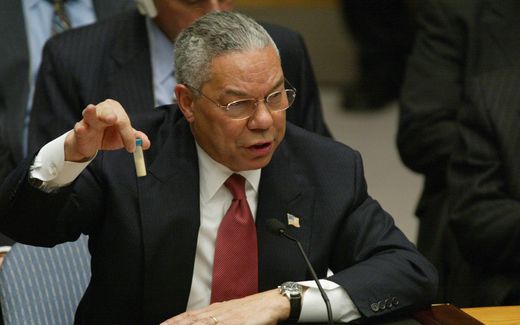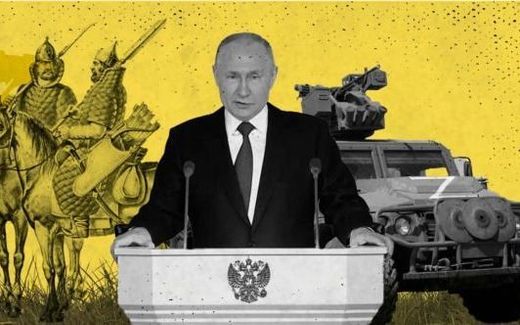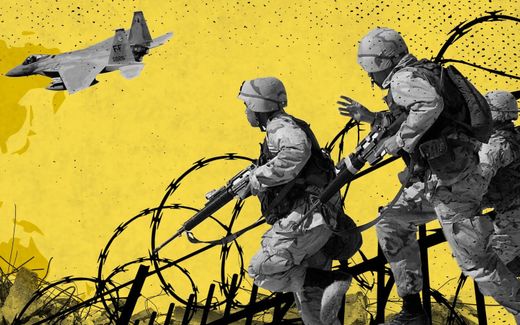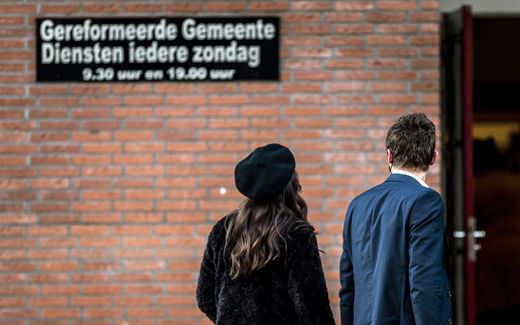How do you keep your hope up amidst ruins?
01-04-2023
Opinion
Jacob Hoekman, RD
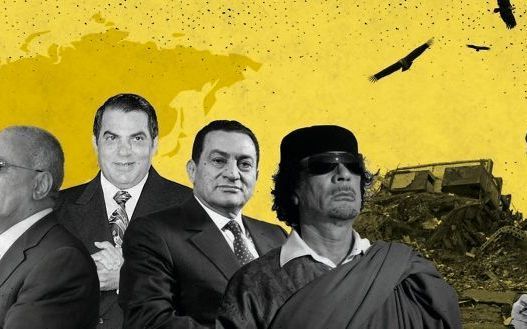
Photo Corné van der Horst
Opinion
Two sad anniversaries were commemorated last week. The first is that the United States, under President George W. Bush invaded Iraq 20 years ago, after which the country sank into chaos, from which it has still not recovered. The second is that the Syrian civil war began 12 years ago last week - a war that continues in parts of the country to this day.
Having stood on the ruins of both wars myself, they left me quite despondent. How should these countries ever move forward? How will there be an end to the disruptive sectarian tensions created by these events? Moreover, their influence extends far beyond the Middle East. Massive refugee flows emerged, and heated debates about the Western role in the Middle East ensued. Both created us-versus-them situations of extreme proportions.
Radical
Therefore, we briefly dive into the causes of "Iraq 2003" and "Syria 2011". First, Iraq: what are we talking about? The Americans and other Western allies invaded Iraq in March 2003 because the dictator of that time, Saddam Hussein, was said to possess weapons of mass destruction. These were the years after September 11, 2001, and the United States was out for revenge. Saddam was found and eventually hanged. Iraq more or less became a democracy, but on the margins, all sorts of radical groups managed to make their move. Meanwhile, the weapons of mass destruction that started it all were never found. Saddam didn't have them at all.
Then Syria. Mass uprisings against Syrian President Bashar al-Assad broke out in 2011. Those uprisings were copied from other Arab countries, such as Tunisia and Egypt. During this wave of protests, summarised under the name "Arab Spring", heads of state in several countries had to seek safe haven. Some were assassinated. But not Assad. He fought back with Russian and Iranian help and eventually regained control of most of his country. At an astronomical price, though: out of 22 million Syrians, 500,000 lost their lives, and 13 million were displaced. The damage to homes and infrastructure cannot even be imagined.
Link
What is the link between "Iraq 2003" and "Syria 2011"? Often, these events are seen as separate from each other, but the question remains whether that is justified. Middle Eastern expert Ed Husain wrote at the tenth anniversary of the Iraq invasion in 2013, already that the fall of Saddam would be a psychological encouragement for the Arabic opposition in other countries, even though that is only part of the story.
Those were the years in which the United States was still careless, without being hindered by too much knowledge. It was the period in which the USA wanted to create democratic societies in the Middle East. There was even a so-called "democratic domino theory". It said that the fall of Saddam would certainly lead to the fall of more dictators in the region. Undoubtedly, it inspired local Arab opposition forces.
The lesson learned from Iraq was that, apparently, it was possible to expel dictators, even when they had been glued to the plush for decades.
Westphalian peace
It is true in a certain sense. The Arabic Spring reckoned with several dictators. But that had nothing to do with democracy – on the contrary. The outcome of both Syria and Iraq can be seen as negative. Both situations were exploited by Jihadistic groups – first al-Qaeda, later Islamic State. Both caused lasting instability. They showed us that neither American intervention nor protests from the lower classes of the population could guarantee a peaceful society. Both hoped to establish a new order but ended up in hopeless wars. Again: something that will make you desperate.
So it is only doom and gloom? Not necessarily. Most Arabic uprisings have been answered with a renewal of autocracy up till now. That results in more state control and less freedom.

Yet, this development can start a more significant trend in the long term. Actually, it can do so in the same way as the religious wars in Western Europe did. They, too, brought chaos at first. But in the long run, they created a foundation of freedom and democracy, from which we still benefit. Just like the Peace of Westphalia from 1648 concluded ancient conflicts, it is possible that also the Levant becomes a way of life in which conflicts do not define everything. Instead, there is space for innovation and excellence.
Conflicts
The new order cannot be born without wars and conflicts, the Palestinian-Norwegian thinker and activist Iyad al-Baghdadi believes. "In some places, there is a civil war. In others, there are changes of power. Instability is inherent to the transition to a democratic system. It is not a neat and orderly process. It was not in Europe, and it is not in the Middle East."
Maybe that is the best way to view the Middle East. Twelve years since the start of the Syrian civil war and twenty years since the Iraq invasion are too short to indicate what is happening. Fifty or a hundred years will be better for that.
No one knows whether the expectations of Al-Baghdadi and others will have become true by that time. But what does man have to lose when the alternative is desperation?
This article was translated by CNE.news and published by the Dutch daily Reformatorisch Dagblad on March 27, 2023
Related Articles

